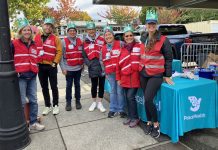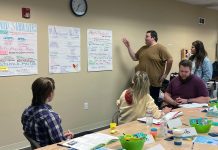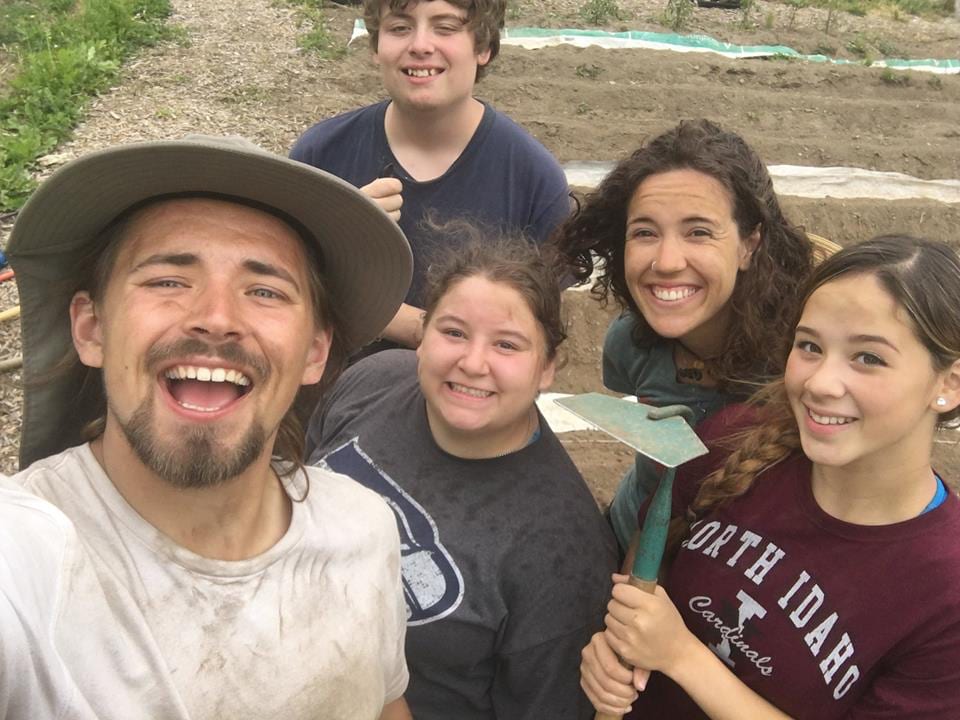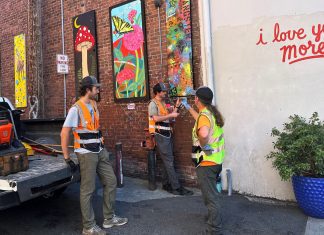There’s something magical about growing food. It’s amazing how you can plant this tiny seed, water it, make sure it has sun, keep the bugs off and it grows into something you can eat. I remember my first garden and that feeling of sheer excitement when I bit into my first tomato.

Even when a critter was clearly biting into them, I would comb through books (and now online) to try to remedy whatever was ailing them. I remember how big the zucchinis would get when I couldn’t see them through the foliage. I was so proud when I could actually make a meal out of the tomatoes, zucchini, broccoli and kale. The better the first round of plants got, the more variety of vegetables I wanted to plant. It ignited a passion to see what else I could grow and like a worried parent anticipating the growth of her little plants, I was fully invested in their survival. That’s what one entrepreneur hopes will happen with her young employees.
Whatcom County’s Kali Crow-Liester, Executive Director of Growing Alliances, is on a mission. She aims to create a cadre of alums of the community garden program to come back and work with youth to create a cycle of empowerment around food security and justice. Growing Alliances is a non-profit community garden that employs youth transitioning out of foster care and other young people.
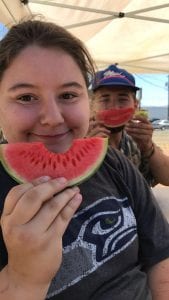
“We have several goals,” said Kali. “We grow our food to go to food banks but we also are simultaneously building skills to prepare them for the workforce and building awareness around the food system.”
Growing Alliances leadership started with Heather Tiszai, with whom Kali volunteered. Heather would later recommend Kali for the executive director role when she stepped down. When Kali took over, she had to register a new license, change the mission and members of the board all within a few weeks.
Kali is a recent graduate of Fairhaven College of Interdisciplinary Studies at Western Washington University where she studied food security and environmental resilience. Throughout college, Kali was most interested in the capacity of sustainable agriculture towards creating food security. Her first experiences were with the WSU extension Community First Garden Project and as the Garden project coordinator for Northwest Youth Services. She continually asks herself how we can use urban farming as a social justice tool to provide resources and food for people who don’t have it.
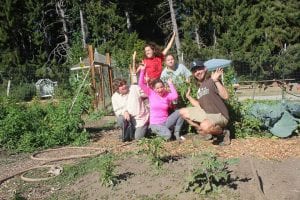
“Our mission with Growing Alliances is empowering youth through opportunities with vocational agriculture. We want to give them as many opportunities to build their confidence around empowering themselves and see how they can improve other people’s lives. This builds that re-investment for them to return to the program to train the next group.”
This is where Kali gets particularly passionate about Growing Alliances … her vision for the future. She would like to see a community of alumni where five to 10 years from now, the alums are talking to the current employees so that they are teaching each other.
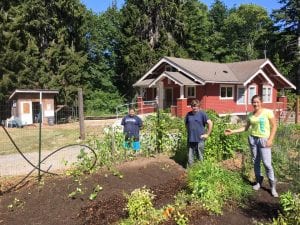
“I’d love to see the people who have gone through the program turn around and help us improve and then teach those improvements,” Kali said. “I really hope they will take over to teach the way they wanted to be taught.”
Kali would also like to partner with the schools so Growing Alliances can award credit to schools and students participating in the program. In addition to growing and donating the food to local food banks, she would also like to see the youth actually prepare and serve the food. They would have the chance to engage with the community they are serving and hopefully build trust and a sense of investment with the program long term.
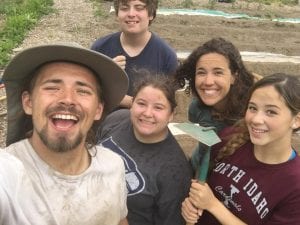
So, how does one gain employment in this program? Kali says it’s very simple and they will be hiring in March 2018. Go to the Growing Alliances website for more information about the program itself. Then if you’re interested, you can email info@growingalliances.org to introduce yourself, give examples of your volunteer experience and why you’re interested in the job. It’s that simple. (Don’t forget to give her your contact information.) The next step would be to have an informal interview to discuss what the job will look like and your level and ability to commit.
If you’re interested in donating to Growing Alliances, you can do that too. Simply go here and donate away! The more money raised, the more hours of youth employment and organic food-based production can happen. If you are interested or know someone who is passionate about this project, Growing Alliances is also looking to grow its board.
For even more information about growing your own food or their latest news, you can check out their blog here. Now, go forth and grow!


















